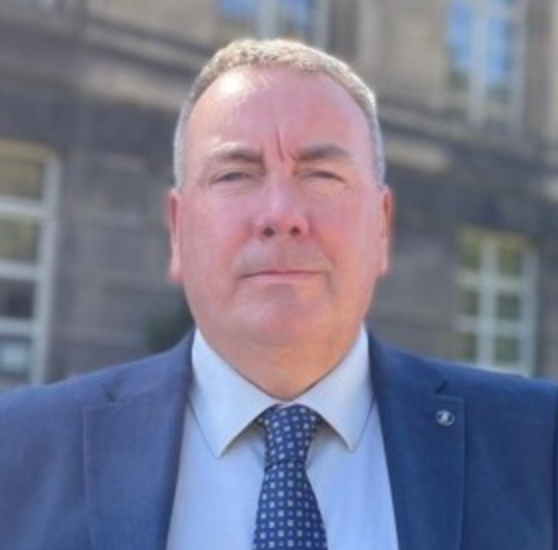By Gemma Fraser
Head of content
More consistent recording of police suicides, as well as procedures to establish the circumstances leading to the deaths, are needed to prevent future tragedies, it has been warned.
Four Police Scotland officers and staff died by suicide last year, according to force figures, bringing the total to 11 since 2020.
Previously, the force did not record police officer suicides, but started doing so following scrutiny by politicians at Holyrood.
And while the move to record the information has been welcomed, it is argued this is just a starting point, with much more work needed in order to help prevent future deaths.
Dave Marshall, suicide researcher at the University of Strathclyde, and former senior police officer, has led a UK-wide survey of serving police officers exploring experiences of suicidal thoughts and behaviours.
He told 1919: “Suicide within the police profession remains a critically under-researched area.
“Nationally, inconsistent recording practices present a serious problem – one I repeatedly highlighted during my time as both a serving police officer and chair of the National Police Suicide Prevention Group.
“It is disappointing that policing has yet to address this issue.
“The ultimate aim of my research is to identify the factors and conditions within policing that may contribute to suicidal thoughts and behaviours.
“Suicide within the police profession remains a critically under-researched area”

“Only by confronting and understanding these issues can effective intervention and prevention strategies be developed. I am currently working closely with Police Scotland in this regard and look forward to sharing my findings as they emerge.”
The figures revealing the number of off-duty police officers and staff who died by suicide were released through freedom of information laws.
One suicide was recorded in 2020, with two recorded each year up until last year when the number reached four.
Three of the recorded deaths were officers who were going through or who had undergone misconduct proceedings – an issue highlighted by Scottish Conservative leader Russell Findlay.
He said: “Having publicly raised the tragedy of police officers taking their own lives with Police Scotland and the Scottish Police Authority, I was surprised and concerned to be told that suicides were not even being recorded. It is welcome that they have now rectified this oversight.
“The families and colleagues of some officers who took their own lives have told me about their anger towards Scotland’s policing establishment for an apparent lack of interest in examining the cause of their loved ones’ deaths.
“While suicide is complex, they believe that Police Scotland’s often protracted complaints process was a factor in some cases.
“However, there remains a massive blind spot in Scotland compared with the rest of the UK, which is well served by the transparency of the coroner process.
“Not a single police suicide in Scotland has been subject to a Fatal Accident Inquiry, even though FAIs are mandatory for every prisoner who dies in custody.”
The Scottish Police Federation (SPF) has also called for further work to be done to better understand the reasons why police officers take their own lives and whether the decision to do so is directly linked to the job.
David Threadgold, SPF chair, said: “Every suicide is a tragedy.
“Does the force understand and know why an officer took their own life? Does it even have the right to understand and know?
“Was there any causal link between the decision and the fact that they were in the police? If so, what are they doing about it?
“What I would like to see is a UK-wide set of criteria by which a police officer suicide is recorded. I don’t know what that would be, but I know that doesn’t exist and I think that would be a useful dataset that would allow us to try to prevent it happening in the future.
“There is a lot of work to do.”
On World Suicide Prevention Day last month, Police Scotland hosted three regional events for officers, staff, and their families, where issues including self-harm, suicide and the impact of trauma were discussed.
In her most recent report to the Scottish Police Authority (SPA), Chief Constable Jo Farrell said that this provided “an important moment to focus on how Police Scotland is working with partners to prevent suicide and ensure people get the help they need and deserve”.
Deputy Chief Constable Alan Speirs told SPA members: “This is an enormously complex area and I would want to give board members the assurance that we are really well connected at a UK level.
“There is a national suicide advisory group that we participate on and there is also a National Police Chiefs’ Council steering group which looks at this from a UK perspective.”
He added: “There’s a recent pilot been launched in Aberdeen, Moray and Angus and that’s looking at bereavement support, so I think we’re really as active as we can be in that space and working very, very closely with partners and looking at the impact both inside and outside the organisation.”
For help and support, visit Lifelines Scotland or call Samaritans Scotland on 116 123
